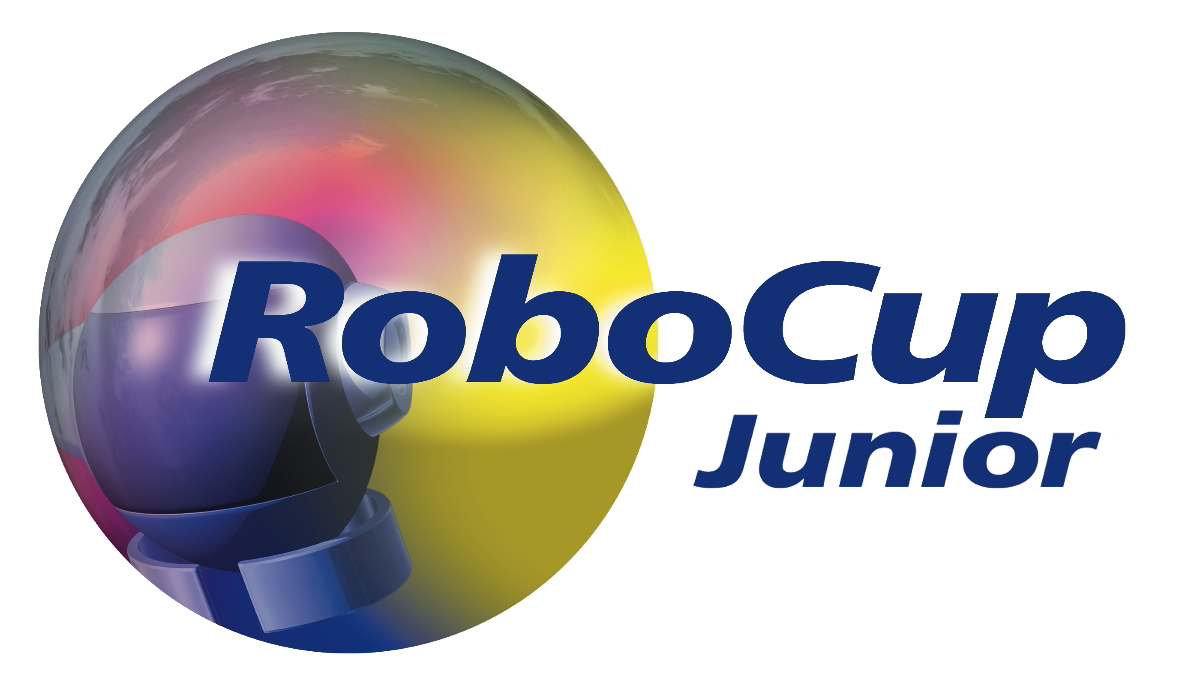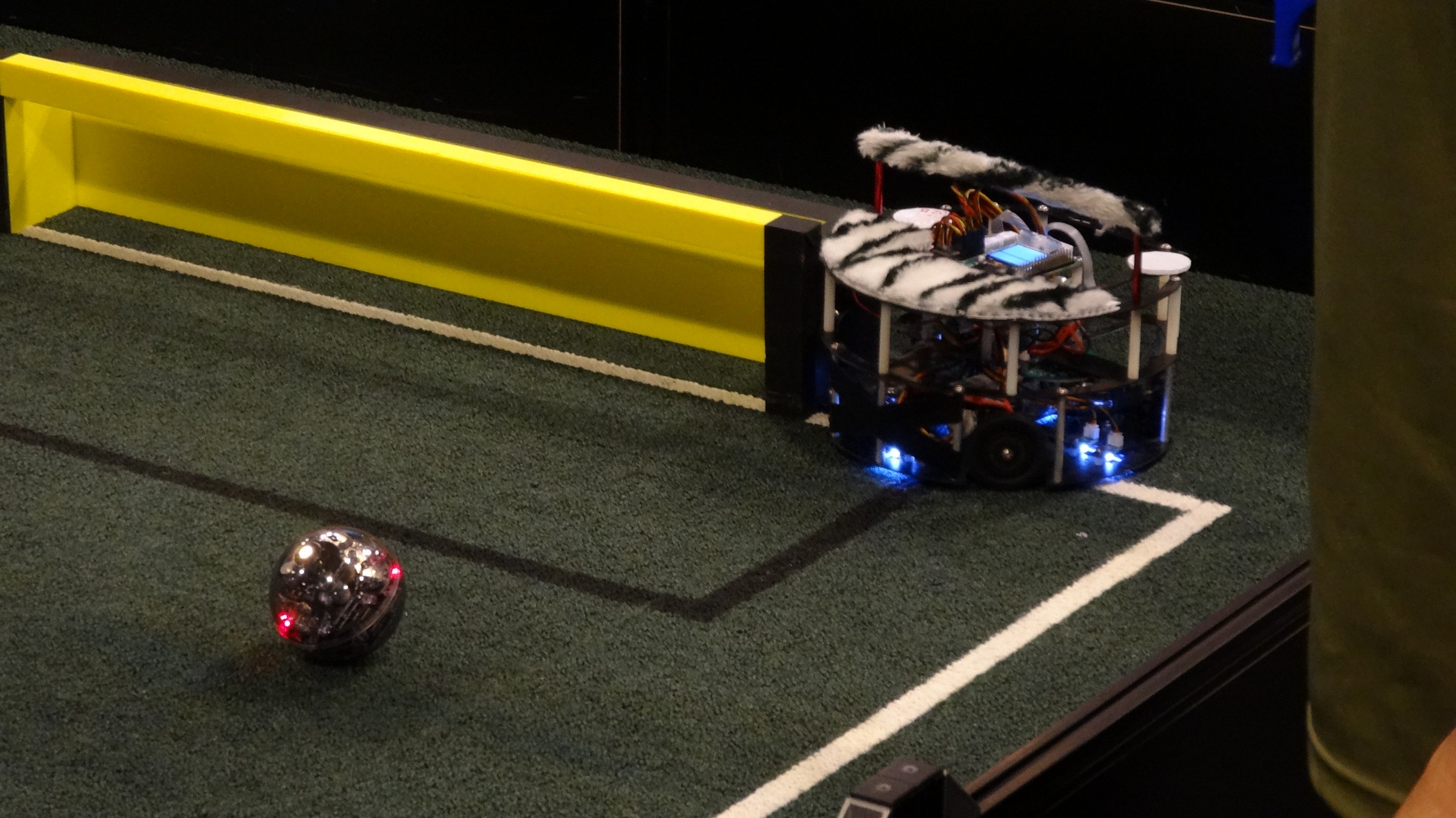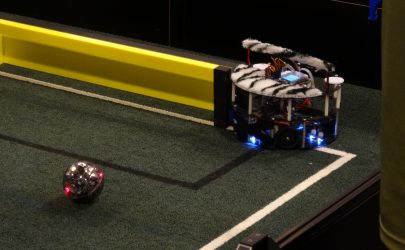What is RoboCupJunior?
RoboCupJunior (RCJ) is a project-oriented educational initiative that sponsors local, regional and international robotic events for young students up through age 19. (For the participation in the International events, there is a lower age limit. Please check the league rules.) It is designed to introduce RoboCup to primary and secondary school children, as well as undergraduates who do not have the resources to get involved in the senior leagues of RoboCup. The focus of RCJ is on education.
RCJ stands apart from other robotics programs for young students for several reasons. First, RCJ is focused more on education than competition. Second, the RCJ challenges remain the same from one year to the next, providing a scaffolded learning environment in which students can develop more sophisticated solutions as they grow and expand their knowledge. Third, the RCJ leagues — Soccer, Rescue and OnStage — are familiar; spectators can watch and understand what they are observing, without needing explanations of complicated rules. Fourth, RCJ delves more deeply into computer science and programming due to its emphasis on autonomous robots. Fifth, RCJ sits at the entry-level of the international RoboCup initiative, which is strongly committed to education and involvement of young people in technology.
RCJ is part of RoboCup. RoboCup is an international effort whose purpose is to foster Artificial Intelligence (AI) and robotics research by providing a standard problem where a wide range of technologies can be integrated and examined. As well, the initiative serves as a basis for project-oriented education at all levels. The ultimate goal of RoboCup is that by the middle of the 21st century, a team of fully autonomous humanoid robot soccer players shall play (and win!) a soccer game against the (human) world champions.
Challenges
RoboCupJunior offers several challenges, each emphasizing cooperative, problem-solving and task-achievement aspects. In the Soccer league, 2-on-2 teams of autonomous mobile robots play games in a highly dynamic environment, tracking a special light-emitting ball in an enclosed field landmarked in shades of gray. The Rescue league engages robots to identify victims quickly and accurately within re-created disaster scenarios, varying in complexity from line-following on a flat surface to negotiating paths through obstacles on uneven terrain. The robot OnStage league encourages creativity, bringing one or more robots together with music, dressed in costume and moving in harmony.
For children, the RCJ initiative provides an exciting introduction to the field of robotics, a new way to develop technical abilities through hands-on experience with electronics, hardware and software, and a highly motivating opportunity to learn about teamwork while sharing technology with friends. In contrast to the one-child-one-computer scenario frequently seen today, RoboCupJunior provides a unique opportunity for participants with a variety of interests and strengths to work together as a team to achieve a common goal.
To learn more, join our Forum: https://junior.forum.robocup.org/
Ages
RCJ is targeted for primary and secondary school students. Students that compete at RCJ are expected to be able to read and write programs for their robots on their own, without significant help from adult mentors. Students over age 19 are not allowed on RCJ teams.
Since RCJ 2018 there are no divisions between the primary and secondary age categories for the international event:
- Teams with all student members age 14 to 19-year-old are considered Junior.
Age is counted as of July 1st for the international RCJ event each year.
The plan is to bring the minimum age to the international events to 14-year-old by 2021.
2017 (Japan) – was 11-year-old
2018 (Canada) – was 12-year-old
2019 (Australia) – was 13-year-old
2020 – event postponed
2021 (online) – 14-year-old
2022 (Thailand) – 14-year-old
2023 (France) – 14-year-old
Since RCJ 2018, competitions for primary students are organized at the regional and super-regional levels only. Their organizing committees define the age limits that apply on their primary age categories. As a reference, the division between the primary and secondary age categories used to be 14 years old:
- Teams with all student members age 14 and under are considered primary.
- Teams where any student member over age 14 is considered secondary.
Background
More than twenty years ago, the birth of personal computers spawned a new era in the age of technology, and educational applications began to infiltrate classrooms. At the same time, Seymour Papert linked technology with Jean Piaget’s constructivist theory of education to produce LOGO (or “turtle geometry”), a simple programming language that allows young students to learn geometry through computer-based exploration. Papert published these ideas in his book Mindstorms and introduced the notion of constructionism which states that children learn best when they are actively involved in building something that is meaningful to themselves.
Meantime, Howard Gardner put forth his “theory of multiple intelligences”, which describes each human mind as a unique combination of talents expressed across a wide range of cognitive spheres. His book Frames of Mind has been extremely influential in the field of education and has helped drive the trend in classrooms towards teamwork and projects that encourage and motivate different children with different needs.
RoboCupJunior aims at bringing together many of these ideas, promoting project-oriented, team-based education, giving children with a variety of interests and abilities an opportunity to pick their own challenges while contributing to the progress of the whole.
History
RoboCupJunior began in 1998, with a demonstration at RoboCup-98 in Paris. The following year, RoboCup-99 in Stockholm exhibited the first interactive RoboCupJunior workshops. At RCJ 2000 in Melbourne, over 100 children participated from 25 schools around Australia, as well as from Germany and the USA. Students entered one of three challenges: soccer, line-following sumo, and OnStage. In addition, over 500 local school children toured the RoboCup venue and learned about the initiative.
RCJ 2001 was held in Seattle, USA, where 25 teams from four countries (USA, Australia, Germany, UK) entered soccer, rescue, and OnStage challenges. A workshop was held following the tournament, where researchers shared their ideas and progress in educational robotics.
RCJ 2002 was held in Fukuoka, Japan, where 59 teams from 12 countries participated.
RCJ 2003 was held in Padova, Italy in July 2003, where 57 teams from 15 countries participated.
RCJ 2004 was held in Lisbon, Portugal in July 2004, where 162 teams from 18 countries participated.
RCJ 2005 was held in Osaka, Japan in July 2005, where 163 teams from 18 countries participated.
RCJ 2006 was held in Bremen, Germany, in June 2006, where 240 teams from 22 countries participated.
RCJ 2007 was held in Atlanta, USA, in July 2007, where 154 teams from 23 countries participated.
RCJ 2008 was held in Suzhou, China, in July 2008, where 201 teams from 20 countries participated.
RCJ 2009 was held in Graz, Austria, in June-July 2009, where over 200 teams from 25 countries participated.
RCJ 2010 was held in Singapore, in June 2010, where 289 teams from 26 countries participated.
RCJ 2011 was held in Istanbul, Turkey, in July 2011, where about 280 teams from 29 countries participated.
RCJ 2012 was held in Mexico City, Mexico, in June 2012, where about 209 teams from 27 countries participated.
RCJ 2013 was held in Eindhoven, Netherlands, in June 2013, where about 206 teams from 31 countries participated.
RCJ 2014 was held in João Pessoa, Brazil, in July 2014, where about 192 teams from 34 countries participated.
RCJ 2015 was held in Hefei, China, in July 2015, where about 167 teams from 32 regions participated.
RCJ 2016 was held in Leipzig, Germany, in July 2016, where about 209 teams from 35 regions participated.
RCJ 2017 was held in Nagoya, Japan, in July 2017, where about 194 teams from 37 regions participated.
RCJ 2018 was held in Montréal, Canada, in June 2018, where about 188 teams from 41 regions participated.
RCJ 2019 was held in Sydney, Australia, in July 2019, where about 177 teams from 32 regions participated.
RCJ 2020 was postponed.
RCJ 2021 was held remotely, in June 2021, where about 182 teams from 33 regions participated.
RCJ 2022 was held in Bangkok, Thailand, in July 2022, where about 90 teams from 30 regions participated.
RCJ 2023 was held in Bordeaux, France, in July 2023, where about 140 teams from 29 regions participated.
RCJ 2024 will be held in Eindhoven, Netherlands, from July 17 to 21 2024.


